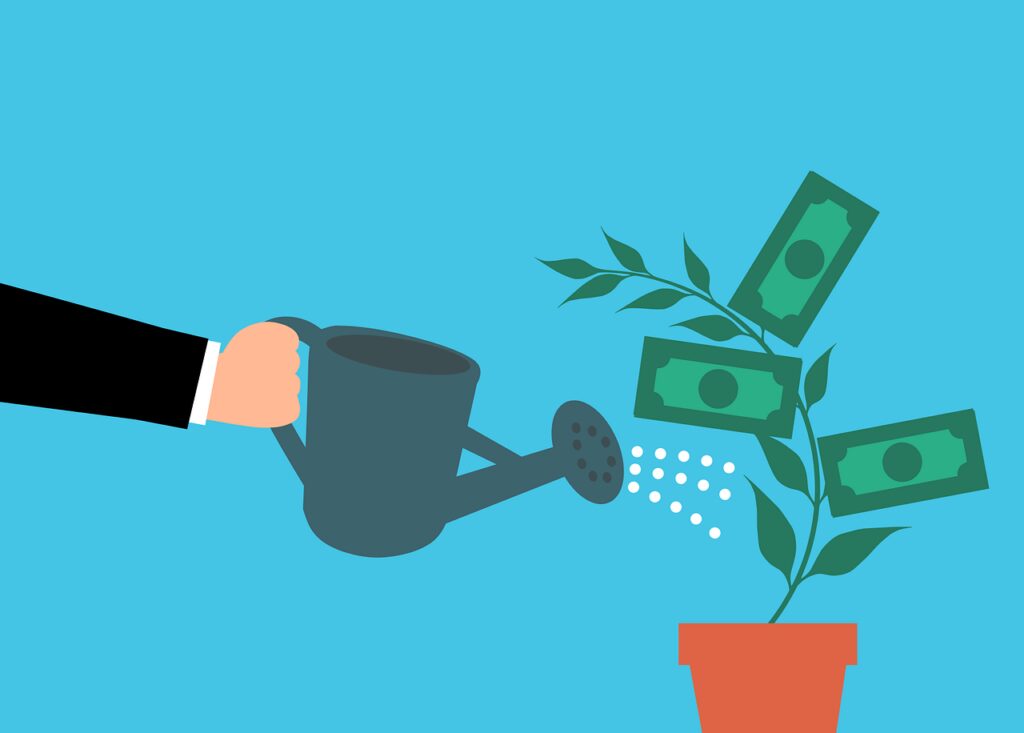Have you ever received a windfall or bonus—unexpected money that seems like a blessing from nowhere? Whether it’s a tax refund, a performance bonus, inheritance, or even a lottery win, managing these financial windfalls wisely can make a huge difference in your financial future. Unlike regular income, a windfall often comes with no planning, making it tempting to spend it impulsively. However, without a clear strategy, that extra money might slip through your fingers faster than you expect.
In this guide, we’ll walk you through how to manage and invest your windfall money effectively to maximize its value, reduce financial stress, and build long-term wealth. Let’s dive in.
Understanding Windfall or Bonus Money
Definition and Examples of Windfalls
A windfall is any unexpected or sudden influx of cash—money you didn’t anticipate receiving. These can come from various sources, including:
- Bonuses: Performance bonuses, sign-on bonuses, or annual bonuses.
- Inheritance: An unexpected inheritance from a family member.
- Lump-sum payments: Tax refunds, lottery winnings, or settlements from legal cases.
- Gifts: Large gifts from relatives or friends.
Common Sources of Windfall Income
- Bonuses: Many workers receive annual or performance bonuses that feel like a “surprise.”
- Tax Refunds: A significant chunk of money often returned due to overpayment of taxes.
- Inheritance: Money or property left by a family member.
- Lottery Winnings: While rare, these can be life-changing sums of money.
- Legal Settlements: Payouts from legal disputes, such as personal injury or employment disputes.
Why Windfalls Are Different from Regular Income
Unlike regular income from a job or business, windfalls are usually not planned for. That lack of expectation can make it harder to manage responsibly. Without a clear plan, it’s easy to either overspend or misallocate the funds.
Benefits of Managing Your Windfall Effectively
Reducing Financial Stress
Receiving a windfall can feel like a financial lifeline, especially if you’re facing debt or financial uncertainty. Properly managing this money can eliminate the stress of looming financial obligations.
Achieving Long-Term Financial Goals
By using your windfall to invest or pay down debt strategically, you’ll build a more secure financial future. Whether it’s buying a home, funding retirement, or creating passive income, a well-planned windfall can accelerate your financial goals.
Building Wealth and Security
Windfalls provide a unique opportunity to create generational wealth. By wisely managing these funds, you can create lasting financial security for yourself and your family.
Step-by-Step Plan to Manage Windfall Money
Set Clear Financial Goals
Before doing anything, define what you want to achieve with your windfall. Ask yourself:
- Is this money for short-term needs, like paying off debt, or long-term goals like retirement?
- Do I want to invest it or build an emergency fund first?
Create a Budget for Your Windfall
A budget helps ensure the money is allocated purposefully. Start by listing out all your potential expenses and prioritize accordingly:
- Emergency Fund
- Debt Repayment
- Investments
- Savings for future needs
Establish an Emergency Fund
Before investing or spending elsewhere, ensure you have a solid emergency fund (usually 3–6 months of living expenses). This cushion helps cover unexpected events like medical bills, job loss, or home repairs.
Prioritize Debt Repayment with Your Windfall
The Importance of Paying Off High-Interest Debt First
If you have high-interest debt like credit card balances, use your windfall to pay it off. High-interest debt is a financial burden that reduces your ability to grow wealth.
- For example, paying off a 20% interest credit card balance can be more valuable than investing in the stock market.
Strategies to Manage Different Types of Debt
- Credit Cards: Pay off balances with the highest interest rates first.
- Student Loans: Focus on private loans or consolidate federal loans.
- Personal Loans: Pay off higher-interest personal loans.
When to Avoid Using Windfall for Debt Repayment
If your interest rates are low (like a mortgage), it might be smarter to prioritize investing the windfall to grow your wealth over time.
Building an Emergency Fund
Why Having an Emergency Fund Matters
An emergency fund protects you from financial shocks like job loss, medical expenses, or unforeseen circumstances.
- Without this fund, you risk draining other assets or accumulating more debt.
How Much to Save in an Emergency Fund
Financial experts recommend having at least 3–6 months’ worth of essential living expenses. If you receive a windfall, consider building a larger cushion to ensure long-term financial stability.
Setting Up a Separate Savings Account for Emergencies
Open a high-yield savings account or money market account to store your emergency fund securely and earn some interest over time.
Investing Your Windfall Money
Options for Investing Windfall Funds
Once you’ve secured your emergency fund and prioritized debt repayment, you can allocate your windfall toward investments that help grow your wealth.
Understanding Risk and Diversification
Diversifying your investments reduces risk. Here are some common investment options:
- Stocks and ETFs: Offer potential for long-term growth.
- Real Estate: Provides passive income and diversification.
- Bonds: Low-risk, stable income.
- Cryptocurrency: High-risk, high-reward potential.
Choosing the Right Investment Strategy
Depending on your risk tolerance and financial goals, choose investments that align with your long-term strategy.
Best Investment Options for Windfall Money
Stocks and ETFs
- Stocks offer the potential for capital appreciation, making them ideal for long-term wealth building.
- ETFs (Exchange-Traded Funds) provide diversification, tracking a broad market index at lower costs.
Real Estate Investment
Real estate provides both passive income through rent and potential for property value appreciation.
Bonds and Fixed-Income Securities
- Government and corporate bonds offer lower risk and predictable income.
- Good for conservative investors seeking stability.
Cryptocurrency and Alternative Investments
- Cryptocurrency can provide significant upside but comes with high volatility and risk.
- Other options include peer-to-peer lending, startups, or venture capital.
Creating a Balanced Portfolio
Diversifying Your Investments to Spread Risk
A well-balanced portfolio includes a mix of asset classes—stocks, bonds, real estate, and others—to reduce risk exposure.
Allocating Funds for Growth vs. Stability
- Growth: Invest more in stocks and high-growth assets.
- Stability: Allocate more toward bonds and fixed-income investments.
Rebalancing Your Portfolio Over Time
As your goals shift or markets change, periodically review and adjust your portfolio to ensure it remains aligned with your objectives.
Long-Term Wealth Building with Windfall Money
Investing for Retirement
Putting windfall money into tax-advantaged accounts like a 401(k) or IRA can accelerate your retirement savings.
Creating Additional Passive Income Streams
Use your windfall to fund other income streams such as rental properties, dividend stocks, or a side business.
Avoiding Common Mistakes When Managing Windfall Money
Overspending and Lifestyle Inflation
It’s easy to treat a windfall as a chance to indulge. Avoid increasing your spending or lifestyle in a way that erodes your wealth.
Impulsive or Emotional Decisions
Stay disciplined and avoid making rash spending decisions based on temporary emotions.
Not Seeking Professional Advice When Needed
Financial advisors can offer expert guidance and help you avoid costly mistakes, ensuring your windfall is used effectively.
Tax Considerations for Windfall Money
Understanding Tax Implications on Bonuses and Windfalls
- Bonuses and windfalls are often subject to higher tax rates than regular income.
Strategies for Minimizing Tax Liabilities
- Consider contributing to retirement accounts to reduce taxable income.
- Use tax-efficient investment accounts, such as Roth IRAs.
Reporting Requirements and Deductions
- Keep detailed records and consult with a tax professional to ensure compliance and maximize deductions.
The Role of Financial Planning and Advisors
When to Seek Professional Advice
A financial advisor can help you create a customized plan based on your unique circumstances and goals.
Benefits of Financial Advisors in Managing Windfall
- Offer personalized strategies to optimize windfall use.
- Provide insights into taxes, investments, and debt management.
How to Select the Right Financial Advisor
Choose someone who understands your risk tolerance and can create a long-term strategy aligned with your goals.
Avoiding Emotional Spending and Maintaining Discipline
Recognizing Emotional Triggers That Lead to Overspending
If you feel tempted to indulge, remind yourself of your financial goals and how the windfall fits into the bigger picture.
Setting Boundaries and Staying Disciplined
Establish limits on how much of your windfall you’ll spend versus save or invest.
How to Celebrate Without Derailing Financial Goals
Consider setting aside a small portion for fun while focusing the majority on financial priorities.
Review and Adjust Your Financial Plan Regularly
The Importance of Reviewing Your Financial Goals
Life circumstances change, and so should your financial plan. Regularly evaluate your progress and adjust accordingly.
Adjusting Your Plan Based on Changing Circumstances
Revisit your financial goals and strategy as your priorities shift or as market conditions evolve.
Keeping a Long-Term Vision
Avoid getting sidetracked by short-term gains. Stick to your long-term wealth-building goals.
Conclusion
Managing your windfall money wisely can be the key to securing your financial future. From paying off debt to investing in your long-term goals, the steps outlined here will help you maximize the value of unexpected financial gains. Stay disciplined, seek professional advice if necessary, and ensure your windfall doesn’t become a fleeting opportunity. With careful planning, you can turn that windfall into lasting wealth.
FAQs
- How much of my windfall should I use to pay off debt?
- Prioritize paying off high-interest debt first, typically around 50–70% of your windfall.
- Is it better to invest or save my windfall?
- If your emergency fund is built, investing is usually better for long-term growth.
- What are the best investment options for windfall money?
- Stocks, ETFs, real estate, bonds, and cryptocurrency are all great options, depending on your risk tolerance.
- How can I avoid overspending my windfall?
- Set clear financial goals, budget, and avoid emotional spending by staying disciplined.
- When should I consult a financial advisor about my windfall?
- Anytime you’re unsure about your investment options or need help managing taxes and debt.




